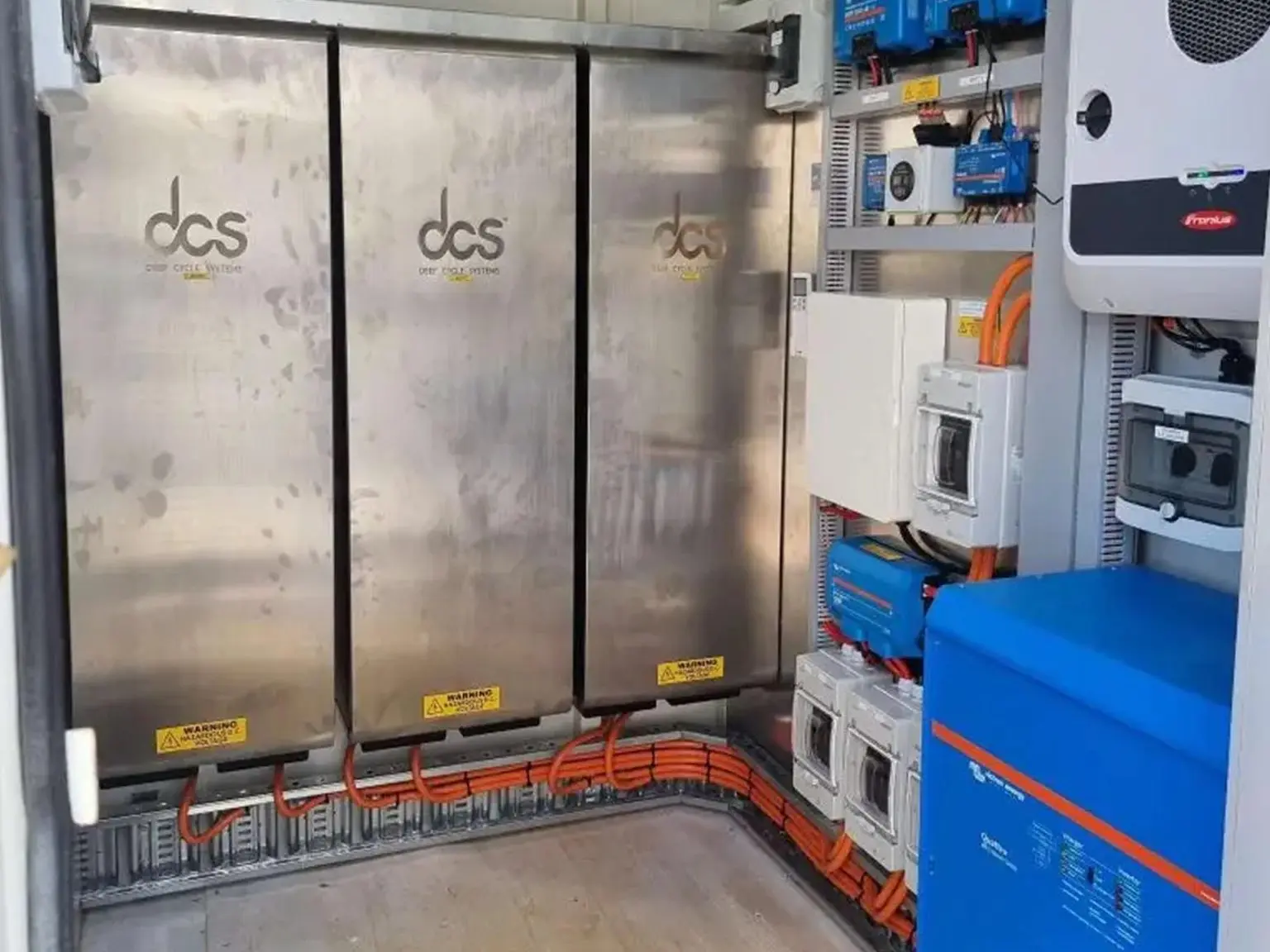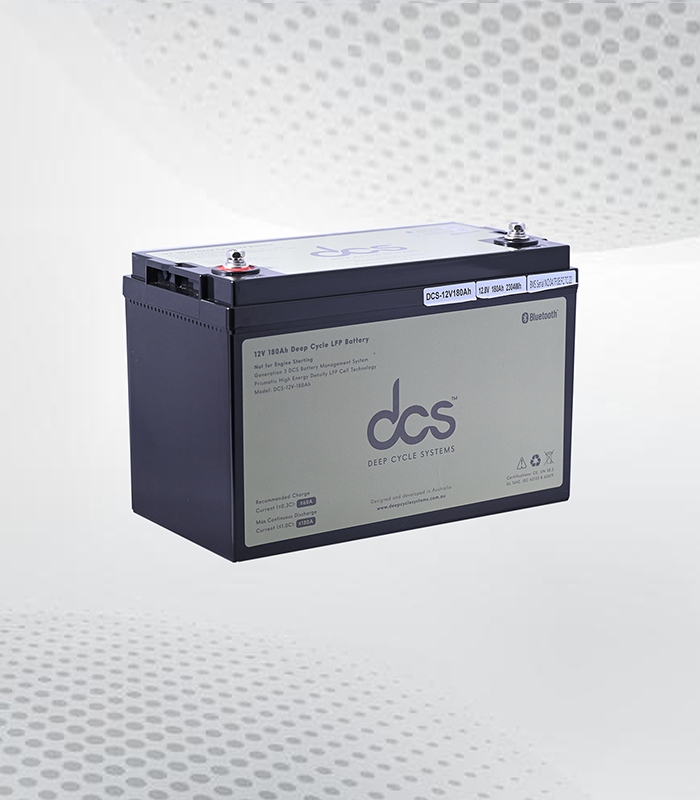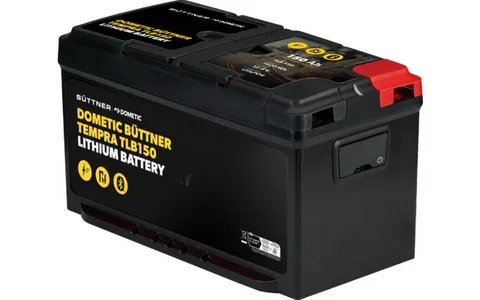Solar-battery systems have become vital in the transition towards renewable energy. These systems store energy captured from solar panels, ensuring a steady supply even during non-sunny periods. As the reliance on renewable energy sources grows, the understanding of solar-battery systems becomes increasingly significant. By incorporating these systems, substantial energy savings and a marked reduction in reliance on conventional power sources can be achieved. This discussion explores the various elements of solar battery system, shedding light on their potential advantages and practical applications and their role in enhancing energy efficiency and sustainability.
Sizing a Solar-Battery System
Determining the optimal size for a solar-battery system is integral to achieving energy efficiency. This process begins with a detailed analysis of energy needs, focusing on daily consumption patterns and peak usage times. A correct assessment ensures the battery system can meet energy demands without overburdening resources.
Key factors include understanding total energy consumption and identifying any seasonal variations in usage. By calculating the correct capacity, one can balance storage capabilities with system efficiency. A well-sized system helps avoid unnecessary expenses and maximises the utilisation of stored solar energy.
Considering these elements, along with future energy needs, can greatly influence the effectiveness and sustainability of the solar-battery system. Proper sizing optimises performance and ensures a reliable energy supply over the long term.
Choosing the Right Battery for Solar Off-Grid Use
Choosing the appropriate battery for solar off-grid systems necessitates a thorough understanding of the available options and their characteristics. Capacity, measured in kilowatt-hours (kWh), is a fundamental criterion as it dictates the amount of energy the battery can store. Another critical factor is cycle life, which indicates how many charge and discharge cycles a battery can endure before its performance degrades. This measure is essential for assessing the battery’s long-term viability and cost-effectiveness.
Efficiency is essential, reflecting how well the battery can convert and store solar energy without significant losses. Despite their higher upfront cost, lithium-ion batteries are often favoured for their superior efficiency and longer cycle life compared to lead-acid batteries. The application’s specific requirements, such as the need for high energy density or deep cycling capability, should guide the selection process.
Other considerations include the battery’s operating temperature range, maintenance needs, and potential for recycling. Each type of battery has strengths and limitations, and understanding these aspects helps make an informed decision. Carefully evaluating these factors can help you choose the most suitable battery for a solar off-grid system, ensuring optimal performance and longevity.
Off Grid Battery System Benefits
Off-grid battery systems provide substantial benefits, particularly for users in isolated locations. A key advantage is the ability to generate and store electricity independently of the central grid, which is particularly valuable in areas where grid access is limited or non-existent. These systems enable the utilisation of renewable energy sources like solar power, fostering a move towards sustainable energy practices.
Additionally, the use of off-grid battery systems can lead to significant financial savings over time by reducing dependency on traditional power sources and mitigating exposure to fluctuating electricity prices. In emergencies, an off-grid battery system can serve as a critical backup power supply, ensuring essential services and operations continuity. Such systems also contribute to energy security by decentralising power generation and reducing the risk of large-scale outages.
Moreover, advancements in battery technology have made these systems more efficient and longer-lasting, enhancing their practicality and appeal. Off Grid Battery System can support environmental goals and energy resilience by leveraging renewable energy and efficient storage.
Maintaining Your Solar-Battery System
Regular maintenance is vital to ensure a solar-battery system’s efficiency, reliability, and longevity. Proper care helps prevent performance issues, extends battery life, and maximises energy storage capabilities. Below are key maintenance practices to keep your solar-battery system functioning optimally.
Monitoring Battery Charge Levels
Maintaining proper charge levels is critical for battery health. Overcharging or deep discharging can significantly reduce lifespan. Regularly check the state of charge using the system’s monitoring tools and ensure it stays within the manufacturer’s recommended range. A well-balanced charge cycle enhances performance and prevents premature degradation.
Inspecting Electrical Connections
Loose or corroded connections can hinder system efficiency and pose safety risks. Periodically inspect terminals, cables, and wiring for wear, corrosion, or poor contact. Clean any corrosion with a suitable brush and tighten connections to ensure optimal conductivity and system stability.
Keeping the System Clean
Dust, dirt, and debris can accumulate on battery surfaces and vents, leading to overheating and reduced efficiency. Wipe down batteries and surrounding components regularly to maintain proper airflow. Ensure vents remain unobstructed to prevent excessive heat buildup, which can damage battery cells.
Maintaining Optimal Temperature Conditions
Extreme heat or cold can negatively impact battery performance and lifespan. Install the system in a temperature-controlled environment whenever possible. If outdoor installation is necessary, use insulation or ventilation solutions to regulate temperature fluctuations.
Updating System Software
Ensure your solar-battery system receives regular software updates if it includes a digital monitoring interface. These updates often include performance enhancements, bug fixes, and improved diagnostics, helping maintain system efficiency and reliability.
Types of Best Batteries for Solar Off Grid
Several types of batteries are suitable for solar off-grid systems, each offering distinct benefits and drawbacks. Lead-acid batteries are often chosen for their cost-effectiveness and dependability. Despite their shorter cycle life and lower efficiency compared to other types, they remain a widely utilised option. Lithium-ion batteries, while more costly initially, provide superior efficiency and a longer lifespan, making them an increasingly popular choice for long-term energy storage.
Nickel-based batteries, though less common, are notable for their durability and resistance to extreme temperatures, making them suitable for specific environments. Flow batteries, which use liquid electrolytes, offer the advantage of easy scalability and long cycle life, though they are typically bulkier and more complex to install.
Each battery type has unique characteristics that can influence its suitability for different off-grid applications. By thoroughly understanding these options, the best batteries for solar off grid systems can be selected based on specific requirements and conditions.
Installation Considerations for Off-Grid Systems
Proper installation of an off-grid battery system is crucial for its optimal operation and safety. The process begins with thoroughly assessing the installation site to determine the best location for the solar panels and the battery storage unit. This assessment should consider sun exposure, shading, and weather conditions to maximise energy capture and storage efficiency. Professional installation is strongly advised to ensure compliance with local regulations and standards, which vary by region.
System configuration is another critical aspect involving integrating components such as inverters, charge controllers, and batteries. Precise wiring and connections are essential to avoid inefficiencies and potential hazards like short circuits or fires. Additionally, the structural integrity of mounting systems for the solar panels must be verified to withstand environmental stresses.
Safety measures, including proper grounding and surge protection, are vital to safeguard the system from electrical faults and lightning strikes. Regular monitoring equipment should also be installed to track the system’s performance and facilitate timely maintenance. By addressing these considerations, installing an off-grid battery system can achieve high reliability and efficiency, ensuring a robust and sustainable energy solution.
Cost Considerations for Solar Off-Grid Systems
The financial aspects of installing a solar off-grid system encompass several elements, including the cost of solar panels, batteries, inverters, and other essential components. Initial investment can be substantial, influenced by system size, technology choice, and installation complexity. However, the long-term economic benefits often justify the upfront expenses. Electric bill savings can be significant over the system’s lifespan, particularly in areas with high energy costs.
Additionally, government incentives and subsidies can reduce initial outlays, enhancing affordability. Maintenance costs, though relatively low, should also be considered, ensuring the system remains efficient and functional. Proper financial planning and a detailed cost-benefit analysis are crucial to making informed decisions about the viability and sustainability of solar off-grid systems.
Environmental Impact of Solar-Battery Systems
Solar-battery systems significantly reduce environmental impact by utilising renewable energy sources, thereby decreasing reliance on fossil fuels. By storing energy generated from solar panels, these systems facilitate a consistent supply of clean power, which contributes to lowering greenhouse gas emissions. Additionally, the adoption of solar-battery systems aids in diminishing air pollution, as it curtails the need for coal, oil, and natural gas-fired power plants that release harmful pollutants into the atmosphere.
The manufacturing process of solar batteries has also improved, with many producers adopting eco-friendly practices and materials to further reduce their environmental footprints. Recycling efforts for used batteries are becoming more robust, which mitigates the potential for environmental harm due to improper disposal.
In agricultural settings, solar-battery systems can support sustainable farming practices by powering irrigation systems and machinery, decreasing diesel fuel consumption. For remote communities and developing regions, these systems provide a vital source of reliable electricity, promoting economic development and reducing the dependency on environmentally damaging energy sources.
Overall, integrating solar-battery systems represents a significant step towards a more sustainable and environmentally conscious future. Their ability to harness and store renewable energy ensures that clean power is available even during non-sunny periods, reinforcing the stability and resilience of renewable energy infrastructures.
Conclusion
In conclusion, investing in a solar battery system offers numerous benefits, including maximising your energy savings, reducing reliance on the grid, and contributing to a more sustainable environment. By storing excess energy produced during the day for use at night or during peak periods, solar batteries enable homeowners and businesses to fully utilise their solar panels. As technology improves and prices decrease, solar-battery systems become more accessible and efficient. With the right setup, you can significantly reduce your electricity bills, enhance energy independence, and positively impact the planet.
FAQ’s
What is a solar battery system?
A solar battery system stores excess energy your solar panels produce during the day. This stored energy can then be used at night or during periods of high demand, reducing your reliance on the grid and maximising energy savings.
How much can I save with a solar-battery system?
Savings vary depending on your energy consumption, location, and the size of your solar-battery system. On average, homeowners can reduce their energy bills by 50% to 70%, depending on how much solar energy they can store and use.
Are solar batteries worth the investment?
Yes, solar batteries are becoming more cost-effective and provide long-term savings. While the initial cost may be high, the return on investment is substantial, particularly if you’re in an area with high electricity rates or frequent power outages.
What types of solar batteries are available?
The most common types of solar batteries are lithium-ion and lead-acid batteries. Lithium-ion batteries are more efficient and last longer, and they are currently the most popular choice for residential solar energy storage.
How long do solar batteries last?
Solar batteries typically last 10 to 15 years, depending on the type and how well they’re maintained. Lithium-ion batteries tend to have a longer lifespan than lead-acid batteries.
| Related Business Listings |
| Contact Directory |
| Local Business Profiles |




